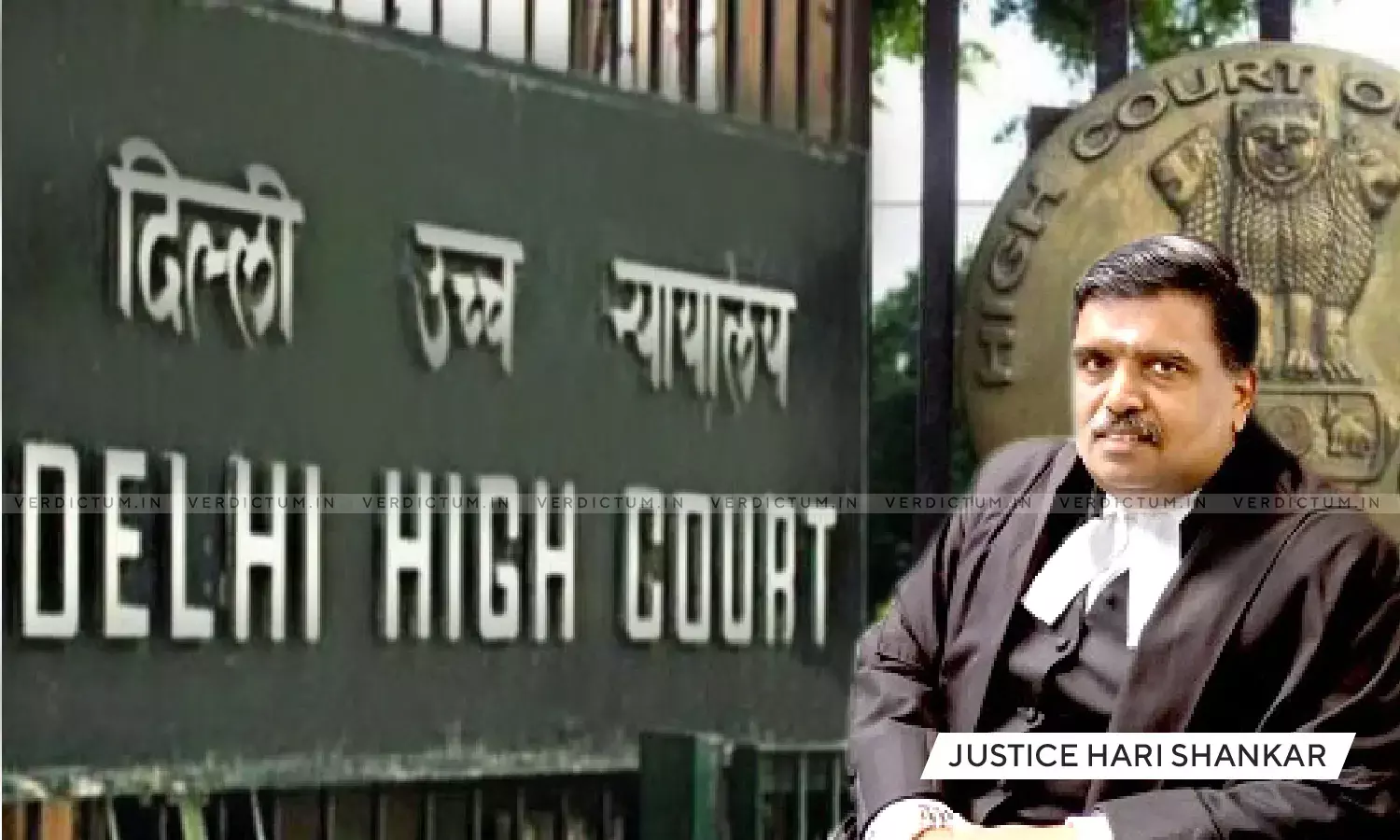Occasion Of Referral Court To Examine Issues Of Fact And Law Is Now An Exception, Rule Being Otherwise: Delhi HC On Effect Of Section 11(6A) A&C Act
The Delhi High Court observed that the occasion of Referral Court to examine issues of fact and law is now an exception, the rule being otherwise.
The Court held thus while explaining the effect of the inclusion of sub-section 6A in Section 11 of the Arbitration & Conciliation Act, 1996.
The Court was hearing petitions filed under Section 11(6) of the Arbitration and Conciliation Act, 1996 for referring the disputes between the petitioner and respondent to arbitration.
The bench of Justice C. Hari Shankar mentioned the decision in Vidya Drolia v. Durga Trading Corporation and according to the Court Supreme Court observed, “…in the interests of arbitral autonomy and keeping in mind the need for circumspection while interfering, judicially, with the arbitral process, the referral Court should, ideally, leave all issues of fact and law to be decided by the arbitral tribunal. The Court noted, “occasion for the referral court to examine such issues is, therefore, clearly now an exception; the rule being otherwise.”
Advocate Avinash Trivedi appeared for the Appellant and Advocate Abhimanyu Garg appeared for the Respondent.
Brief Facts-
The petitioner was awarded construction work for a World Class Skill Centre at Jahangirpuri, IIT, Delhi, and additional projects at Shahbad Daulatpur, Delhi. Despite completing the work, certain bills remained unpaid. The petitioner addressed a representation to the Chief Project Manager, followed by an appeal to the Managing Director requesting the formation of a Dispute Resolution Committee (DRC). No DRC was constituted. Subsequently, the petitioner issued a notice under Section 21 of the 1996 Act seeking arbitration. With no response from the respondent, the petitioner has approached the Court under Section 11(6) of the 1996 Act for arbitration referral.
The Court said that consequent on the introduction of sub-Section 6(A) in Section 11, the Supreme Court has in several decisions held that the jurisdiction of the Referral Court is now circumscribed. The Court mentioned its recent decision in ESRI R & D Center India Pvt Ltd v. Ambience Towers Pvt Ltd, according to the Court in which it was noticed that the insertion of sub-section (6A)6 in Section 11 by the Arbitration & Conciliation (Amendment) Act, 2015, was intended precisely to dilute the effect of earlier judicial pronouncements, including National Insurance Co. Ltd v. Boghara Polyfab Ltd, U.O.I. v. Master Construction Co. and New India Assurance Co. v. Genus Power Infrastructure Ltd, of which the decision in Genus Power Infrastructure held that the referral Court was while exercising jurisdiction under Section 11(6) of the 1996 Act, also required to examine any allegation of fraud or coercion if raised by either party.
The Court held that coercion, or its absence, is a complex question, purely of fact, which has necessarily to be examined by the arbitral tribunal.
Accordingly, the Court held that the disputes between the parties are prima facie arbitrable.
The Court said that all questions of fact, law, jurisdiction, limitation and the like are open to be urged before the learned Arbitrator and the Court expressed no view on it.
Finally, the Court disposed of the petition.
Cause Title: Nafees Ahmed v. Delhi Tourism and Transportation Development Corporation Ltd. (Neutral Citation: 2024:DHC:5077)




